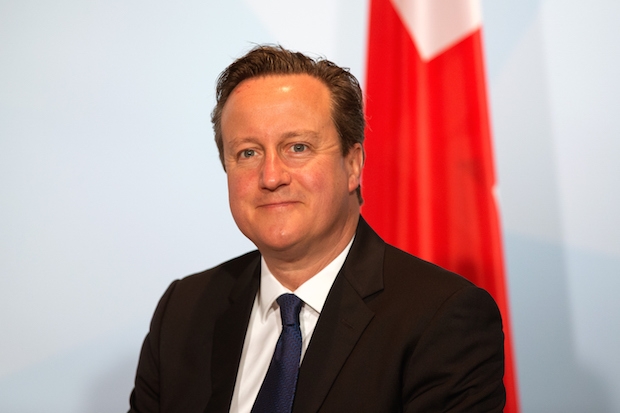How did David Cameron get into such a mess on Europe so quickly? For those whose heads are still spinning (and this probably includes the Prime Minister) over what on earth just happened to upset the Tory party so much and force Downing Street into a frenzied climbdown, here’s the anatomy of David Cameron’s European U-turn.
4 January 2015
David Cameron says there will not be a free vote on the referendum during an interview with Andrew Marr. Here is the transcript of the Prime Minister’s answers:
ANDREW MARR: Would you give cabinet ministers and other Conservatives who want to campaign for an out,
the freedom to do so in such a referendum?
DAVID CAMERON: Well, there are Conservative Members of Parliament who want the leave the European Union…
ANDREW MARR: Yes, there are.
DAVID CAMERON: … come what may, but if you’re part of the government, then clearly you’re part of the team that is aiming for the renegotiation…
ANDREW MARR: (over) So you’re not going to do a free vote…
DAVID CAMERON: … referendum…
ANDREW MARR: (over)… as Labour did in, in the 70s.
DAVID CAMERON: No, I’ve set out that very clearly in the past.
7 June 2015
David Cameron tells a press conference at the G7 summit that anyone who opposes his policy on the renegotiation and referendum will have to resign:
QUESTION: Can I just check, on the EU referendum, have you absolutely closed your mind to allowing ministers a free vote? That’s a no-no [inaudible]?
PRIME MINISTER: I’ve been very clear, which is I’ve said that if you want to be part of the government, you have to take the view that we are engaged in an exercise of renegotiation to have a referendum, and that will lead to a successful outcome.
QUESTION: So anyone in government who opposes that will have to resign?
PRIME MINISTER: Everyone in government has signed up to the programme set out in the Conservative manifesto. Thank you. See you all later. Enjoy the mountain.
This is then written up as Cameron saying his ministers must campaign for staying in the European Union or be sacked. There is no push-back to this until the next day, when, according to Cameron, he wakes up and reads the newspapers, even though the story ran from the Sunday evening through to the morning news bulletins without clarification.
A minister, James Wharton, is sent out to defend the government line on the Today programme, saying:
‘That is, fundamentally, what that means. If the Government is taking a government position, if collective responsibility is applied, if you don’t want to support that position you have to leave. You are then free to campaign for whatever you want, to vote for whoever you want. If we get to a position where the Government’s position is that this renegotiation has been successful – and the details will be there for everyone to see when we get to that point – then it is reasonable to expect that collective responsibility will apply.’
But David Davis, Graham Brady and Andrew Mitchell criticise the plan, and the Tory party buzzes around Parliament in a very ill temper.
8 June 2015, 11am
Downing Street insists at the morning lobby briefing that David Cameron’s words were ‘over-interpreted’, that they only apply to the renegotiation, and that he hasn’t made a decision about what to do during the referendum campaign:
‘The PM was clearly talking yesterday about the position on collective responsibility during the renegotiation, a position that the PM has set out previously, including in the House during the Queen’s Speech debate, a position that, I think, has been over-interpreted by a number of outlets this morning who have wrongly suggested that the PM was talking about the approach during the referendum.’
8 June 2015, 3pm
David Cameron goes further at another press conference at the G7 summit, saying he was ‘misinterpreted’:
‘I was clearly referring to the process of renegotiation. But the point is this. I have always said what I want is an outcome for Britain that keeps us in a reformed EU. But I have also said we don’t know the outcome of these negotiations, which is why I have always said I rule nothing out.
‘Therefore it would be wrong to answer hypothetical questions. I know that can be frustrating. I know you want to jump to the end of the process and have all the questions answered now about the end of that process. That is not going to be possible. You are going to have to take this stage by stage, step by step and you will get the answers.’
So, currently, the Prime Minister’s position on Europe is that his ministers must support his plan for a renegotiation as set out in the Tory manifesto, but that there is no detail on what will happen during the referendum campaign.







Comments